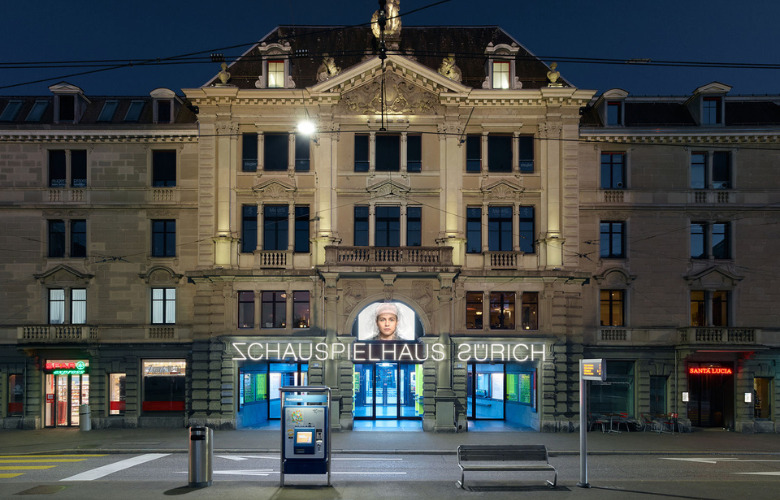
The Zurich Theatre House (Zuercher Schauspielhaus) has been at the center of a heated debate for many months now. The big and quite profound and philosophical question is: For whom do we create and perform theatre? In order to find out, the Zurich Theatre House actually ended up inviting its audience for an interview.
In January 2023, the Zurich Theatre House, which is Zurich’s biggest traditional theatre, invited audiences to a summit. They wanted to talk about what you expect from your theatre, what you wish for, and what you would do differently.
And the theatre management wrote in their invitations that they looking forward to “an animated and constructive debate.”
Before this invitation went out to their audiences, there had been many angry discussions about the prestigious Zurich theatre in various media.
There was talk of a uniformity. And of a dwindling audience. Because the renewal rate for subscriptions was 72 percent and not over 90 percent as in the theatres in the Swiss cities Bern and Basel.
Some productions are well attended, others less so. But not even the well-attended ones are as full as he would like, admitted the Co-Artistic Director Nicolas Stemann.
The discussion event in which the Zurich Theatre House aimed to give their audience a voice, took place inside the theatre. With the theatre management in a panel on stage and the audience in the auditorium – yet far more involved than normal.
The discussion revolved mostly around the questions, “What is city theatre?” and “How can theatre be a meeting place and space for experience?”
The audience in the auditorium was able to participate. Their questions and comments were collected using the Internet tool Sli.do. Afterwards, they were projected onto the back of the stage.
One obvious problem which crystalized out of these discussions was that the measures the theatre had taken to combat the pandemic had exacerbated the problem of twindling audiences.
After the pandemic and a change of directorship, the number of visitors often fell because the previous audience felt alienated and new audience groups are now not yet making up for the decline.
Overall, some audience members longed for a more traditional interpretation in the performed plays. There was quite a bit of dispute of how modern is too modern.
Then there was the question of diversity and inclusion. Zurich is an international town with a myriad of different theatre goers. How can a theatre house rooted in tradition keep luring people into its halls? Which themes are appropriate? Whom do you alienate when you perform what?
The artistic balancing act necessary to satisfy all tastes and needs is becoming ever more difficult.
The debates about race, gender, and origin, about gender asterisks and participation not only concern the theatres in German-speaking countries, but all modern societies.
“It’s also politically explosive that we’re showing new aesthetics with different bodies,” says the Zurich Theatre House’s anti-discrimination agent Yuvviki Dioh.
Apart from these rather profound, societal discussions which touch theatre at their core, small annoyances were addressed, too.
Many audience members wanted a more inviting foyer, later start times, and more breaks.
It turned out many regular theatre goers not only come to the Zurich Theatre House to passively watch the performance but also to meet, socialize, and spend time with each other in their shared experience.
Actor, Director, and Lecturer in Hong Kong: Billy Sy
The House of Dancing Water… Remembering a Masterpiece


Liam Klenk was born in Central Europe and has since lived on four continents. Liam has always been engaged in creative pursuits, ranging from photography and graphic design, to writing short stories and poetry, to working in theatre and shows. In 2016, Liam published his first book and memoir, 'Paralian'.
Read Full Profile© 2021 TheatreArtLife. All rights reserved.

Thank you so much for reading, but you have now reached your free article limit for this month.
Our contributors are currently writing more articles for you to enjoy.
To keep reading, all you have to do is become a subscriber and then you can read unlimited articles anytime.
Your investment will help us continue to ignite connections across the globe in live entertainment and build this community for industry professionals.